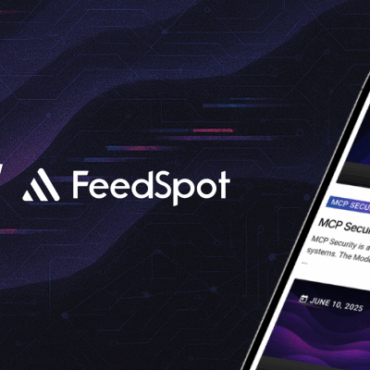Generative AI is new attack vector endangering enterprises, says CrowdStrike CTO
ZDNet, June 30, 2024
According to CrowdStrike CTO Elia Zaitsev, the technology’s capability to generate human-like text can be exploited by cybercriminals in various ways. One of the significant concerns is the use of prompt injection attacks, where malicious actors can manipulate AI models to extract sensitive data they were trained on, essentially turning the AI into a tool for data leakage. Zaitsev highlights that the rush to integrate generative AI into business operations often bypasses essential security controls. For example, if sensitive information is used to train AI models, these models can inadvertently expose this data to unauthorized users. This issue is compounded by the lack of adequate access controls in current large language models (LLMs), making them vulnerable to misuse.
Despite these risks, generative AI holds substantial potential for enhancing cybersecurity. CrowdStrike’s Charlotte AI is an example of using generative AI to improve security operations by democratizing access to advanced cybersecurity tools and reducing response times to incidents. By integrating AI with human intelligence, CrowdStrike aims to mitigate risks while leveraging the technology’s benefits. To address these security concerns, it’s crucial to implement measures such as validating user prompts and AI responses, restricting direct access to sensitive databases, and using traditional programming techniques alongside AI to manage data queries safely. These steps can help prevent the misuse of generative AI while harnessing its power to strengthen cybersecurity defenses.
Now, Jailbreakers Are Taking Over Indian LLMs
Analytics India Mag, July 1, 2024
In recent developments, the security landscape of Indian large language models (LLMs) has been threatened by the rise of “jailbreakers.” These individuals manipulate LLMs to bypass built-in restrictions, enabling the generation of harmful or prohibited content. This trend poses significant risks, as it undermines the safety measures designed to prevent misuse and protect users.
Jailbreakers exploit vulnerabilities in the algorithms of LLMs, manipulating them to output unintended responses. This issue is particularly concerning for models used in sensitive sectors such as finance, healthcare, and law, where accuracy and ethical compliance are paramount. To combat this, developers are urged to enhance the robustness of their models and implement more stringent security protocols to safeguard against these exploitations.
Prompt injection added to Bing Webmaster Guidelines
Search Engine Land, July 1, 2024
Bing has recently updated its Webmaster Guidelines to include measures against prompt injection attacks, emphasizing the importance of AI security. Prompt injection involves manipulating AI systems by feeding them malicious input, potentially causing these systems to produce harmful or unintended outputs. This addition to the guidelines aims to protect users and maintain the integrity of search results by preventing such attacks from exploiting the AI models used by Bing.
The updated guidelines not only address the technical aspects of detecting and mitigating prompt injection but also highlight best practices for webmasters to secure their content and AI implementations. This move is part of Bing’s broader effort to ensure that its search engine remains reliable and safe for users. As AI technology continues to evolve, Bing’s proactive approach in updating its guidelines underscores the critical need for robust security measures in the digital landscape.
By integrating these updates, Bing aims to stay ahead of potential threats, safeguarding both the platform and its users from the adverse effects of AI manipulation. This initiative reflects a growing recognition of the importance of AI security in maintaining trust and reliability in search engine operations.
The Promise And Perils Of Building AI Into Your Business Applications
Forbes, July 2, 2024
AI systems, particularly generative AI, can automate tasks, analyze large data sets to provide actionable insights, and predict market trends. For instance, in financial services, AI can optimize trading strategies and improve liquidity management, providing precise cash position forecasts essential for operational stability and strategic planning. This transformative potential demonstrates AI’s capability to drive innovation and significant value across various business domains.
However, integrating AI into business applications is not without its challenges. A major concern is ensuring the ethical use and security of AI. Businesses must guarantee that AI systems are transparent, accountable, and free from biases that could result in unfair or harmful outcomes. This involves mitigating the risk of AI generating misleading or harmful content, which could damage a company’s reputation and lead to legal issues. Effective governance, thorough testing, continuous monitoring, and robust security measures are essential to manage these risks. By adopting a strategic approach, companies can leverage AI to foster growth and innovation while ensuring responsible and safe use of the technology.
Someone got ChatGPT to reveal its secret instructions from OpenAI
Microsoft, July 3, 2024
Recent discoveries have exposed the hidden system instructions that govern ChatGPT’s responses, sparking debates about the security and safety of AI. A user inadvertently triggered ChatGPT to reveal its internal guidelines from OpenAI with a simple prompt, which provided detailed system instructions including limitations and usage rules for various AI functionalities. This incident highlights the potential risks associated with AI models, where seemingly harmless prompts can lead to unintended disclosures of proprietary or sensitive information. OpenAI has since patched the issue, but the episode underscores the need for robust security measures in AI systems to prevent similar leaks.
This revelation comes amid broader concerns about AI safety, as researchers have demonstrated that specific keywords can prompt ChatGPT to divulge parts of its training data, sometimes including personal information. These vulnerabilities pose significant ethical and legal challenges, especially as AI becomes more integrated into business and personal applications. Ensuring the security of AI systems not only protects proprietary information but also safeguards user privacy, emphasizing the critical need for continuous monitoring and improvement of AI safety protocols.
Subscribe for updates
Stay up to date with what is happening! Get a first look at news, noteworthy research and worst attacks on AI delivered right in your inbox.




